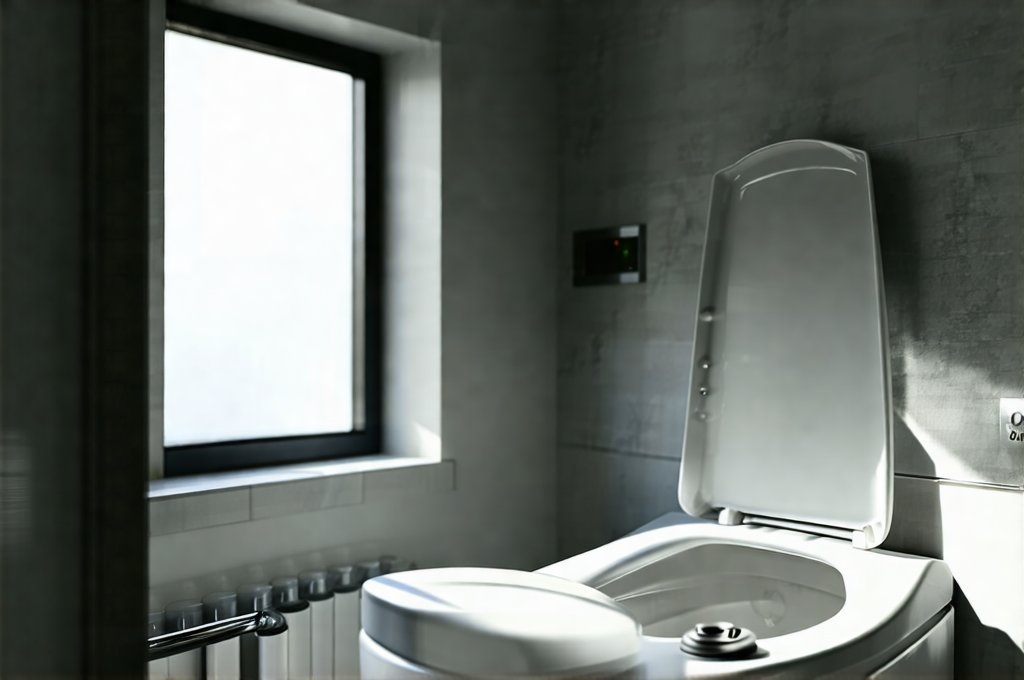The human body operates on intricate rhythms, many governed by our circadian system – an internal clock influenced by light and darkness. For most people, this manifests as predictable patterns in sleep-wake cycles, hormone release, and even digestive function. A common experience linked to these rhythms is the timing of bowel movements. Historically, waking up with a need to defecate has been considered ‘normal’ for many, often attributed to gastrocolic reflex stimulated by morning coffee or breakfast. However, increasingly people are noticing a shift in this pattern – finding themselves needing to go much earlier than usual, sometimes even before fully awakening and while still in a state of near-darkness. This change can be unsettling, prompting questions about its causes and potential implications.
This shift isn’t necessarily indicative of illness; it’s often a complex interplay between lifestyle factors, dietary habits, stress levels, and the body’s natural adjustments. Understanding these nuances is crucial to differentiating between a benign adjustment and a sign that warrants further investigation. It’s important to remember that ‘normal’ bowel habits are highly individual. What constitutes a change for one person may be perfectly typical for another. This article aims to explore the potential reasons behind this shift in stool timing, offering insights into possible causes, and suggesting avenues for understanding what your body is communicating. We will focus on practical considerations and encourage mindful observation of these changes rather than jumping to conclusions or self-diagnosing.
Understanding the Circadian Rhythm & Digestion
The connection between our circadian rhythm and digestive system is profound. It’s not simply about when we eat, but how efficiently our bodies process food at different times of day. Our gut microbiome also exhibits diurnal variation – meaning its composition and activity fluctuate throughout the 24-hour cycle, impacting digestion and nutrient absorption. Light exposure plays a critical role in synchronizing these processes. When light enters the eyes, it signals to the suprachiasmatic nucleus (SCN) in the brain, which then influences hormone release and other bodily functions, including digestive motility.
A disruption to this delicate balance can easily impact bowel habits. Factors like shift work, jet lag, irregular sleep schedules, or even excessive screen time at night can throw off the circadian rhythm, leading to changes in digestion. When the body’s internal clock is misaligned, it can affect gut motility – the contractions that move food through the digestive tract. This misalignment can manifest as either constipation or diarrhea, and, in some cases, a shift in the timing of bowel movements. The experience of needing to defecate very early in the morning, while still drowsy, could be a sign that the digestive system is operating on an altered schedule.
Furthermore, dietary changes are significant. Increased fiber intake, changes in hydration levels, or even introducing new foods can all influence stool consistency and timing. Stress also plays a substantial role; the gut-brain axis means stress directly impacts digestion. When we’re stressed, our bodies often prioritize energy allocation to deal with perceived threats, potentially slowing down digestive processes or increasing intestinal permeability. This can contribute to altered bowel habits and a shift in timing. It’s important to note that this isn’t always about acute stress; chronic, low-grade stress can have equally significant effects on gut function. Understanding your gut testing can help identify underlying issues.
Identifying Potential Contributing Factors
Pinpointing the exact cause of a stool timing shift requires careful self-assessment. Start by keeping a detailed ‘bowel diary’ for at least one to two weeks. This should include:
1. Time of bowel movement
2. Stool consistency (using a Bristol Stool Chart as a guide)
3. What you ate the previous day
4. Stress levels and sleep quality
This data can reveal patterns that might otherwise be missed. Consider these specific areas when evaluating your diary:
- Sleep Schedule: Are you getting enough sleep? Is your sleep schedule regular, even on weekends? Disruptions to sleep are almost always linked to digestive changes.
- Dietary Intake: Have you recently changed your diet? Are you consuming adequate fiber and fluids? Pay attention to foods that might trigger symptoms (e.g., lactose intolerance, gluten sensitivity). Consider a temporary elimination diet under professional guidance if you suspect food sensitivities.
- Stress Levels: What stressors are present in your life? Are you managing stress effectively through exercise, meditation, or other coping mechanisms? Chronic stress can significantly impact digestive function.
- Medications and Supplements: Some medications and supplements can affect bowel habits. Review any medications you’re taking with a healthcare professional to determine if they could be contributing to the shift.
Consider whether diagnostics are needed to explore acid balance in your digestive tract.
The Role of Gastrocolic Reflex & Early Awakening
The gastrocolic reflex is a natural physiological response where eating stimulates colonic contractions, leading to an urge to defecate. This typically happens within 30-60 minutes after a meal. For many people, this coincides with their morning routine – coffee and breakfast triggering the reflex. However, if your digestive system is highly sensitive or operating on a different schedule, the gastrocolic reflex could be occurring earlier than usual, even before you’ve had a chance to eat or drink anything.
Early awakening can also play a role. When we wake up, cortisol levels naturally rise as part of the body’s preparation for activity. Cortisol can stimulate gut motility, potentially contributing to an urge to defecate. If your circadian rhythm is shifted, and you are waking earlier (even if briefly during the night), this cortisol surge could be occurring at a time when your digestive system is more sensitive. This is why some individuals report experiencing the shift in stool timing after making changes to their sleep schedule or routine. You might find that meal timing plays a role here, too.
When To Seek Professional Advice
While most shifts in stool timing are benign and can be managed with lifestyle adjustments, there are situations where seeking professional medical advice is crucial. Do not self-diagnose. If you experience any of the following symptoms alongside the shift in stool timing, consult a healthcare provider:
- Significant abdominal pain
- Blood in your stool
- Unexplained weight loss
- Persistent diarrhea or constipation that doesn’t improve with lifestyle changes
- Changes in stool consistency accompanied by fever
- A sudden and dramatic change in bowel habits
These symptoms could indicate an underlying medical condition, such as irritable bowel syndrome (IBS), inflammatory bowel disease (IBD), or a malabsorption disorder. A healthcare professional can perform necessary tests to rule out any serious concerns and provide appropriate guidance. Remember that early detection is often key to effective management of gastrointestinal issues. They might suggest stool tests or other investigations, depending on your situation. Understanding digestion slowing down is also important. Also consider why gas builds up as a contributing factor, particularly in the evening.
It’s essential to approach these changes with curiosity and self-awareness, rather than anxiety. By understanding the potential factors contributing to a shift in stool timing, you can take steps to optimize your digestive health and overall well-being.


















